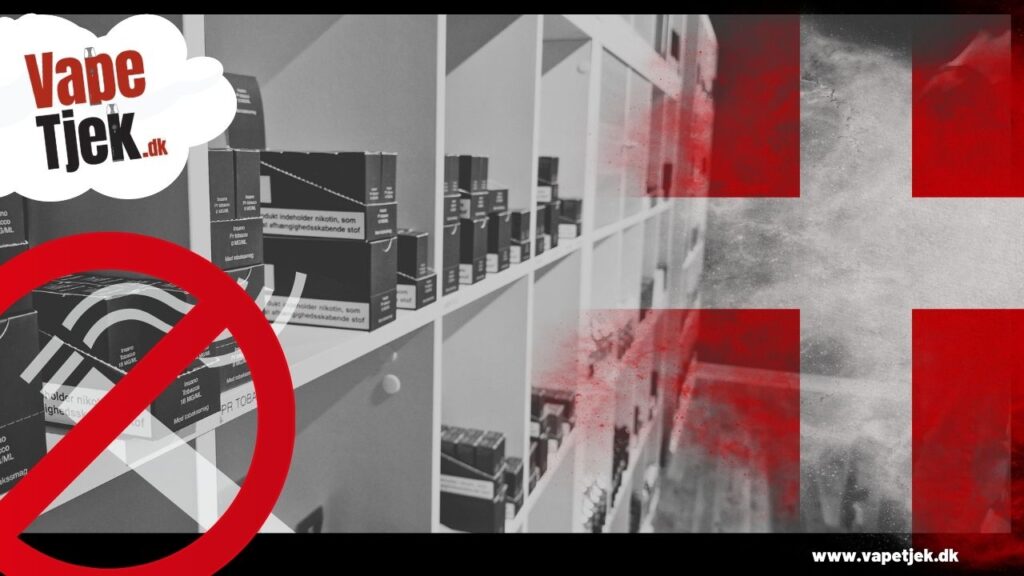The debate about nicotine pouches is in full swing in the Danish parliament. The pouches have become more popular in Denmark as well as in other EU countries and the products are currently completely unregulated in the EU. The government wants to tighten the legislation, while the opposition is calling for a more lenient approach.
"To protect young people, they want to introduce a ban that affects adults," says Louise Brown from the Liberal Alliance.
"Sweet flavours like watermelon are not designed to appeal to adults," says Minister of Health Sophie Løhde from the Liberal Party.
With this in mind, a majority in the Danish parliament wants to ban all flavours in nicotine pouches, except tobacco and menthol. The majority also wants to introduce a maximum amount of nicotine of 9 mg per pouch.
The opposition criticises the proposed restrictions, pointing out that they are out of step with developments in Sweden and Finland.
"To protect young people, they want to introduce a ban that affects adults," repeats Louise Brown from the Liberal Alliance.
New requirements for nicotine pouches
More than one in three young people - 36 % - have tried a tobacco or nicotine product at some point. Against this backdrop, a majority in the Danish parliament has signed a so-called prevention plan targeting children and young people.
The plan introduces new requirements for nicotine pouches:
- they must be sold in standardised packages
- They can only have a tobacco or menthol flavour
- they must be a specific size
- they can contain a maximum of 9 mg of nicotine per pouch
"Cynical industry"
When the Danish parliament debated the bill for the first time on 11 October, the fronts were sharply drawn. The government and the left argued that the legislation should protect children and young people from nicotine. The opposition responded that the restrictions would primarily affect adult consumers who want an alternative to cigarettes.
"The cynical marketing methods of the nicotine industry have led to 40 % of our young people using at least one harmful nicotine product," said Social Democrat prevention spokesperson Mathilde Powers. "We are fighting against a powerful and cynical industry," she continued.
Concerns about the black market
Liberal Party health spokesperson Christoffer Melson emphasised the importance of preventing children and young people from starting nicotine products as it can increase the risk of addiction to other substances such as alcohol, cannabis or harder drugs.
"Nicotine is an addictive toxin and its use by young people can cause permanent brain damage," said Melson during the debate.
However, he warned against banning the products completely.
"If you hit a product that thousands and thousands of people use, you risk creating a lucrative black market where young people have easier access because there is no one controlling age limits," said Melson.
"In Sweden, we see fewer lifestyle diseases," replied Louise Brown from the Liberal Alliance. "One of the main reasons is that Swedes are smoking far less. Instead, they use smoke-free alternatives such as snus and nicotine pouches."
"Will remove over 90 % from the legal market"
Louise Brown found it illogical that Denmark would restrict smoke-free alternatives for adults.
"To protect young people, they want to introduce a ban that affects adults. It makes no sense. Children and young people under 18 are already not allowed to buy tobacco or nicotine products," said Brown.
"With the government's proposal for a nicotine limit of 9 mg per pouch, the Minister of Health will effectively remove over 90 % from the legal nicotine pouch market. Nicotine pouches are less harmful than cigarettes. If we realistically want to reduce smoking in Denmark, we need an alternative."
Health Minister rejects criticism
This prompted Health Minister Sophie Løhde to dismiss the arguments.
"We know from cigarettes that lower nicotine levels can reduce consumption and addiction. The proposed limit of 9 mg is set to have a real effect on children and adolescents' nicotine intake and to limit the health risks associated with nicotine," said Løhde.
"It's up to manufacturers to adapt"
The Health Minister also rejected the claim that 90 % of the legal market would disappear.
"Manufacturers have the freedom to customise their products if they want to market them in Denmark. Those who currently produce nicotine pouches with 20 mg, 16 mg or 12 mg nicotine can adapt to 9 mg. It is misleading to say that we are banning 90 % from the market," said Løhde.
"The boundary pulled out of thin air"
When asked why they didn't follow Finland's model of a 16.5mg limit instead of an "arbitrary" 9mg limit, the minister responded with a challenge:
"If the nicotine industry really believes that their products are so good at helping smokers quit, they can submit an application for medical authorisation for smoking cessation. Nobody has done that yet - and there's probably a reason for that," said Løhde.
The law is further processed
The Danish Parliament will now discuss the bill in the Health Committee. The Liberal Alliance and the Danish People's Party have announced that they will challenge the factual basis for the minister's arguments.










